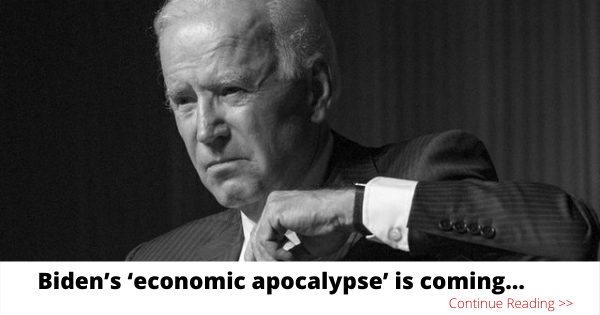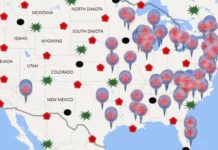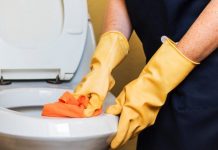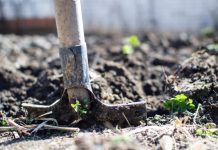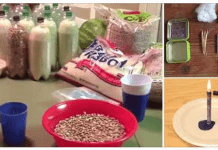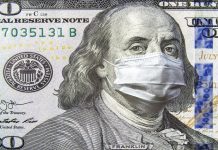Ask any financial planner, and they’ll say you will have at least enough money to cover expenses worth three months. That is before you get to work on any actual investments. We are all prone to losing our jobs, having a downturn in our industry, or having an accident which prevents us from working. If all of those things were to happen, the money would keep us alive while we got a new job or managed other finances.
There is nothing wrong with that suggestion, solely from a financial point of view. Whether you or I are going to suffer some sort of personal tragedy, we will definitely need money to get us through that. That’s the concept behind such advice and up to a point, it’s good advice.
The question is that counseling doesn’t take anything but a personal financial situation into consideration. When we face some other kind of crisis, the money could not do us the least bit of good. This would be particularly true in a scenario where we face a financial crisis or a general social breakdown.
There is a very good risk in such situations that people do not accept cash and may not be able to accept the payment electronically. Too much for the cash reserve; in this light it doesn’t look that useful.
Also, it’s a smart idea to have a buffer. I mean, isn’t that all the time what we Preppers do? Isn’t the simple principle of making sure we store valuables in good times, so we’ll have them at our fingertips in difficult times?
So how can we keep our money secure during these situations while still making it available so that when these situations come we can use it? That may be difficult but we can use some strategies:
As Far as Cash Goes


Just have some cash on hand, to start with. There are many problems in life that we can face that can be overcome by getting cash only. If you can, try to always have about $1,000 in your house. If that’s too much then keep what you can.
If a catastrophe hits first, odds are pretty good you’ll need some cash, even if it’s just filling your gas tank for nothing more. And in situations where the world and our monetary system crumble entirely, people will still accept money for a couple of days. The trick is to know that you are in such a period and spend the money on whatever you need, before people decide to no longer support it.
The other advantage of having cash on hand is that it isn’t going to be impacted by a run on banks or closing branches. Considering how low interest rates have been over the past few years, it’s not like you’re risking money by keeping it locked over your house, rather than getting it locked somewhere in a savings account.
Related: 10 Great Depression Era Strategies For Saving Money
Buy Ahead
Any other money you need to be invested. But how is it that you should invest? You need an investment that protects your money not only from market forces but also in the midst of a major disaster; what we call a TEOTWAWKI case.
Investing in silver does that of course, but it doesn’t mean you want to invest all our money in silver. I would recommend against it, actually. It can take time for people to begin embracing silver in exchange after a disaster. At that time, there’s nothing your silver does for you. It just sits there, takes up space and needs you to keep it safe.
Here’s another way of looking at that: invest in buying stuff you’ll need in the future sometime, by buying them now. Doing this means you can purchase those items at a cheaper price than purchasing them in five to ten years. Instead, you can take the money you’d have to spend on them as a benefit when you use those stuff.
The goal here is to know when it will take you in the future. Buying a wheelchair, because in the future you may use it probably isn’t a smart idea, because you don’t even know whether you’ll need it. Lots of other stuff will mean the same. Your investment must be in something you are confident you will need.
Make an Investment
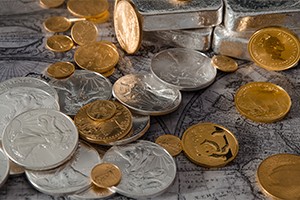

Sure, but how can we get expenditures worth from that $1,000 to the three months that investment experts say we should have on hand?
We may also find ourselves in a position where we need the money for a personal financial tragedy, so getting it makes sense. But at the same time, in a TEOTWAWKI case, too much cash is not going to be useful.
The best way to do that is to invest the capital in something that’s quickly liquidated and would be successful in both normal times and a post-disaster scenario. This simply means precious metals, silver.
While both gold and silver are quickly converted to cash and are likely to be suitable for bartering in a post-disaster environment, there is a big difference between attempting to barter silver worth $15 to $20 per ounce, and gold worth $1,500 to $2,500 per ounce. If you’re trading for something important like buying a car or property, in a world where people are bartering for what they need, you’re going to have a hard time using that gold.
Although in a post-disaster world, some people might not be willing to barter for silver, particularly at the beginning, there is a strong possibility that it will eventually become the medium of trade as people become accustomed to the new standard. This might not happen immediately but most certainly it will happen.
Related: 17 Forgotten Preservation Hacks that Will Save You Money
One of the Best Investments to Make
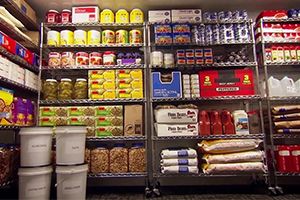

Believe it or not, food is among the greatest investments we can make today. Although for the past few years the overall consumer inflation rate has been hovering around one percent a year, food has risen by an average of eight per cent. That’s an increase in value faster than almost any other investment you can make.
What that means is that it will be worth $1,469.33 if you buy $1,000 worth of food today and keep it for five years. This is a rise in value of approximately 50 percent, given this food inflation stays constant. That’s a massive amount of income, with a low average inflation rate.
Investing in food will do two things for you: it will raise your supply, meaning you’ll have food to eat in the future, and it will make a good investment. Because you’re still going to need money, you ‘re not going to have to think about selling your money to someone else to cash it in.
You can actually “sell” it to yourself, take the money that you otherwise would have had to spend on food and use it for other items. In other words, today you will spend $1,000 and repay about $1,469.33 in five years.
Expand that to Barter Goods
You also don’t have to limit your investment to food, you can also invest in all kinds of barter products. Something in the aftermath of a tragedy expected to be in short supply is worth investing in. If I had known that there would be a run on toilet paper, I would have invested heavily in that last December, before the rush.
In any post-disaster country, people will be searching not just for toilet paper but also for a host of other items. When you’re the one with them, you can trade for what you’ve got, for what they need. This means people will actually become wealthy.
Throughout World War II, for the ostentatious purpose of visiting “family,” people in the cities of occupied Europe would fly to the farmlands with suitcases full of silver and other valuables. The family they visited were traders, who were eager on the black market to barter hams, sausages, cheese and butter for money. After the war ended, many of those farmers became millionaires, selling all the silver they had been bartering for during the war.
Related: How To Get Survival Supplies When You Have Almost No Money
Obviously the trick is to have what people need. While some things are obvious (like TP), others are not. Yet even the obvious stuff can not be all that lucrative, because there are many others that have it too. A hoard of 4,000 rolls of toilet paper, if you are across the street from a factory full of 20,000 rolls, won’t be all that lucrative.
Make sure and diversify, and make sure you have products that would be beneficial to have. Don’t put all eggs in one bowl. Instead, pick a range of different things you can invest in to help ensure you’re having a good return on your investment.
Since this is a dual-purpose project, I would recommend that you seek to spend as much as possible in the stuff you can use. And, if you’re never going to barter those things in the wake of a catastrophe, you can still make money out of your savings just like we talked about food. It might be 20 years before you want to start using those 4,000 rolls of toilet paper, but when you do, you’ll save a lot more than you spent in it in the first place by not having to buy it.




